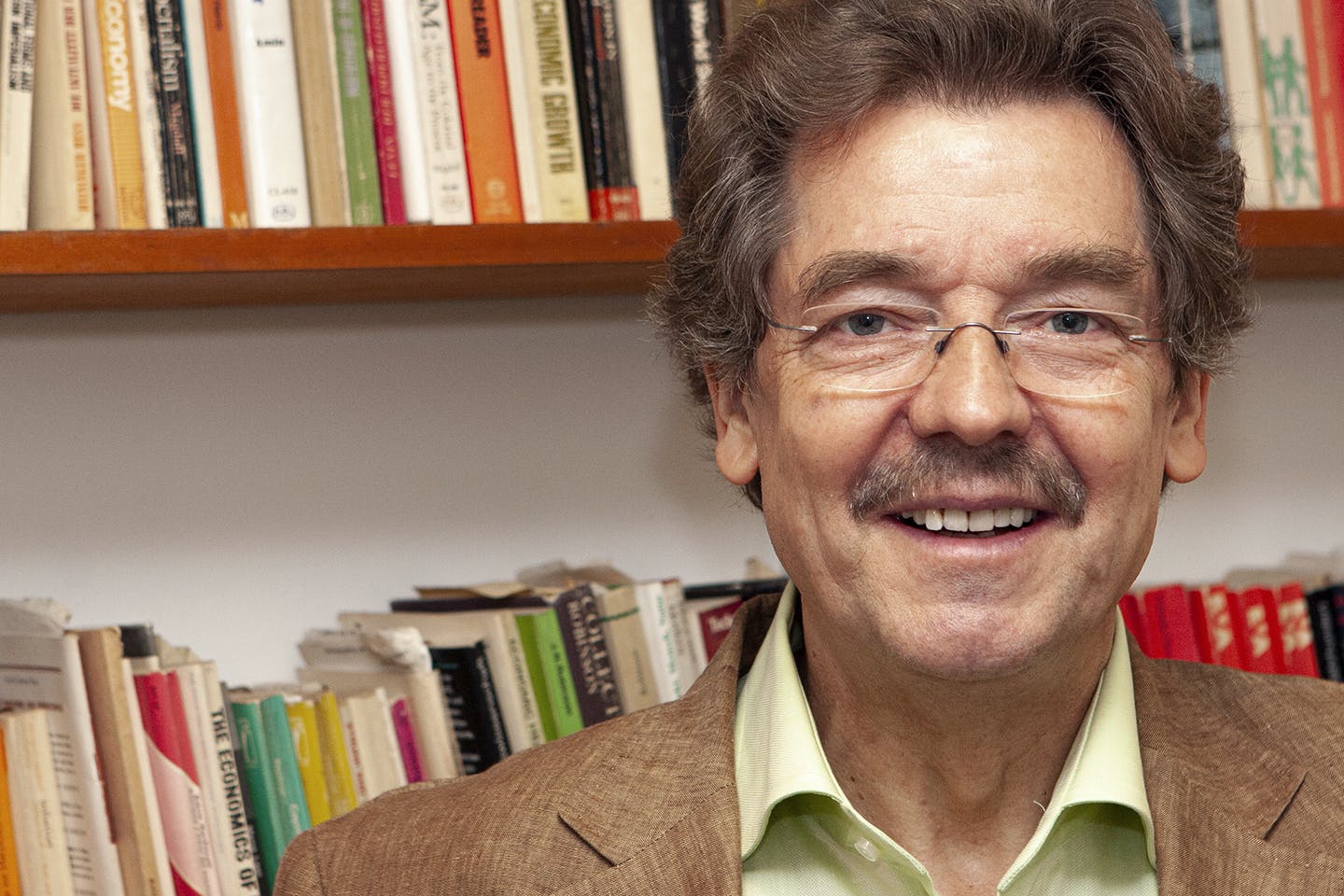
Economics
Willi Semmler, NSSR’s Arnhold Professor of International Cooperation and Development, says his students reflect the spirit of the time and can play an active role in shaping the world of the future.
For the moment at least, Willi Semmler, Arnhold Professor of International Cooperation and Development at The New School for Social Research, teaches and consults out of his home office. The relocation has not diminished the fervor with which he approaches his work or his expansive output. For decades, Semmler has pioneered research in many subjects, including financial economics, macroeconomics, and applied econometrics — a field of study in which quantitative models are used to shed light on economic systems — and advised international institutions on global economic policy. His curriculum vitae runs more than 40 pages and is chock-full of honorary degrees, awards, and publications.
Along with working at The New School, where he began teaching in 1980, Semmler leads major research efforts for organizations including the World Bank, International Monetary Fund (IMF), International Labour Organization (ILO), EU Commission, European Central Bank, and International Institute for Applied Systems Analysis, in Laxenburg, Austria. He has taught at many universities around the globe and says his teaching and research center on “the big topics,” like the financial crisis, the economics of climate change, and the way disasters exacerbate market collapse and wealth and income disparity. Both in the classroom and at the office, he likes to balance real-world practice with rigorous academic work driven by advanced modeling and theoretical frameworks. “Sometimes I frighten students with my technical work and requirements,” he says, “but it’s an important tool; one has to know how to work with data.”
Even though his expertise is in great demand around the world, Semmler is dedicated to his PhD mentees, often bringing them on to his research projects. Today he’s working with several students on a report for the World Bank that explores funding options for climate change–related policies. Semmler describes the process as highly collaborative. When students began studying remotely, he was concerned that it would be difficult to coordinate their joint research. Instead, though, he’s noticed increased productivity during the period and found the ability to check in daily with students and share progress with one click “revolutionary.” The final manuscript, about 130 pages in length, will be published this month, and students will be compensated for their work. Semmler says that collaborations like this one open doors for PhD candidates; his students often go on to work at the World Bank, IMF, and ILO.
The New School has a long-standing tradition of multidisciplinary research and intellectual inquiry. According to Semmler, that is precisely what makes his students valuable to international clients. By design, the university continually transcends disciplinary boundaries and divisions in engaging with critical issues such as climate change, deglobalization, and the role of the welfare state. While students receive a specialized education in the Economics department, they are also exposed to a wide range of subjects. Semmler’s most popular course, on climate economics, draws students from across the university, including Milano, Parsons, and Lang, allowing for expanded debate and conversation. “When they are going out and getting jobs in other universities, nonprofits, unions, or international organizations, they know the big topics, but they also know the politics and the interdisciplinary aspects of these big topics. This is an important benefit of The New School,” the professor explains.
In Semmler’s view, we are witnessing a major global shift, and The New School has a critical role to play. For a long time, he observes, the world was content to allow markets to regulate themselves, a process that has shaped every social system, from industrial production and services to healthcare and education. But today people are reconsidering the need for stronger governments and shared institutions in order to take on challenges including climate change and pandemics. As we begin the road to recovery, Semmler proposes that we think more imaginatively and go beyond “doing business as usual.” He says, “We shouldn’t manage the current crisis by building up the next one: the climate crisis.”
As new kinds of world order take shape, a unique window of opportunity is opening for students capable of both building data models and discussing theory and the inextricable links between economic and social change through policy intervention. For the first time, international organizations are seeking out that kind of thinker, says Semmler. “I would say what we are doing now fits the spirit of the time. All of these organizations are opening up, and they need new ideas, new people, new paradigms. They are asking for this, looking for students of this kind to help us. Now a new generation of students can step in.”